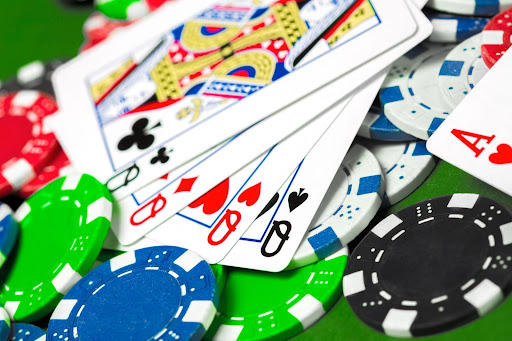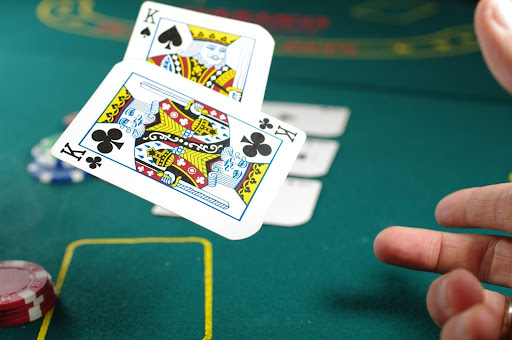
The Psychology Of Poker: Harnessing Your Emotions At The Poker Table
Harnessing your emotions when playing is essential to becoming a successful poker player. It’s one of the critical skills that separate professional players from amateurs. It can be tough to stay calm and focused in a game, particularly when you’re up against more experienced opponents or playing for higher stakes. Emotions can quickly get the better of you, affecting your decision-making and gameplay. Continue reading to learn more tips on how to control them.
Table of Contents
1. Get to Know Your Emotional Triggers
Knowing your emotional triggers is essential for any poker player, whether a professional or just starting. Awareness of these triggers can help you make smarter decisions in the heat of the moment, preventing costly errors and mistakes. If left unchecked, hotheadedness and impulsivity can be a player’s greatest foes, leading to decision-making that needs to be thought through properly. By knowing your emotional triggers when you play poker, you can begin to take control of them.
Rather than letting your emotions get the best of you during gameplay, you’ll have the opportunity to understand what triggers them and take steps to control them when necessary. This allows you to be more in control of your emotions rather than them controlling you, leading to better decision-making and gameplay. It may also help reveal areas where you need self-control and emotional regulation improvement.
-
Actively Rehearse Good Habits
Rehearsing good habits allows you to pre-plan how to approach each situation before it arises by thinking through everyday scenarios. Additionally, rehearsing good habits helps you get into the right mindset to play your best poker—calm and focused rather than overwhelmed and emotional. You can refine your poker skills more efficiently by continuously playing in a disciplined manner with firm dynamic control. This will give you an advantage when outplaying opponents, whether you play online poker or in a live game.
2. Take a Deep Breath
When playing poker, you must think logically and analyze situations quickly. Taking a few deep breaths helps keep your mind sharp and allows you to make decisions more efficiently. In addition, taking deep breaths can help relieve any stress or tension that may arise during the game. Deep breathing techniques can help reduce feelings of anxiety and give players the time they need to evaluate their next move without being clouded by emotion.
By keeping your breathing steady and focused, you can better control how you respond to any situation or player action that upsets you. This can help maintain professionalism at the table or even at various poker sites.
3. Be Mindful of Your Thought
Being mindful of your thoughts at the poker table is essential for emotional control. How you think affects how you handle emotion and can lead to success or failure in the game. Maintaining a positive mindset can help you stay focused on the game and avoid distracting thoughts that could hinder your decision-making process. Conversely, having negative thoughts about yourself or others at the table can trigger emotional outbursts that may lead to embarrassing situations or reduce your overall enjoyment of the game.
Remember that no one enjoys losing, and everyone experiences stress while playing poker; acknowledging these feelings can help keep them under control instead of letting them take over your actions. To keep them in check, always try to practice at free poker games with friends and notice if you are in control of your thoughts.
-
Build Mental Toughness
It requires you to be disciplined in managing yourself mentally—to resist the urge to give in to harmful or destructive thoughts and feelings that can arise when the pressure is high. By controlling one’s mindset and managing their emotions effectively, one will have a much better chance of poker odds while playing. Not only that, but cultivating mental fortitude will give players the confidence to stay in the game and push through any problematic hands they may encounter.
4. Use Positive Self-Talk
 Positive self-talk is a form of cognitive reframing that helps to shift our thinking from negative and limiting beliefs to more productive and empowering ones. When we are in the heat of battle at the poker table, it can be easy to become overwhelmed with big decisions and formidable opponents. By recognizing that specific thoughts or emotions are not beneficial, we can replace them with something more helpful.
Positive self-talk is a form of cognitive reframing that helps to shift our thinking from negative and limiting beliefs to more productive and empowering ones. When we are in the heat of battle at the poker table, it can be easy to become overwhelmed with big decisions and formidable opponents. By recognizing that specific thoughts or emotions are not beneficial, we can replace them with something more helpful.
For example, if you are frustrated after making a few bad plays, instead of letting your anger take over, try replacing those destructive emotions with something more positive, like “I can learn from this mistake and move forward.” This thought process will allow you to stay focused on the game and make informed decisions with your Texas Hold em hands instead of being consumed by negative feelings that may lead to further misplays.
Final Thoughts
An essential part of this practice is learning to control your emotional state to maintain focus and avoid tilting. Recognizing when you are feeling overwhelmed or frustrated and taking a break if needed is essential. Using positive self-talk to stay motivated during tough hands and think positively about potential outcomes can also be helpful. With practice, you can develop strategies that help you manage your emotions while playing poker.
Do you want to challenge yourself? Why not join GGPoker today?

